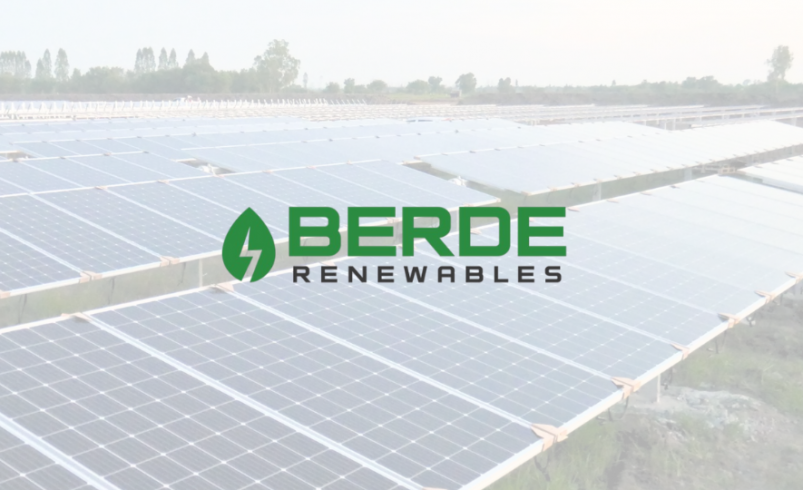Berde Renewables pushes to scale corporate PPAs in a maturing ASEAN market
- October 17, 2025
- 0

When Berde Renewables announced its 300-megawatt joint venture with Thailand’s Premier Solution Provider (PSS) earlier this year, it marked more than a milestone partnership. It underscored Berde’s strategic bet on corporate power purchase agreements (PPAs)—a model that’s rapidly becoming central to Southeast Asia’s clean energy transition.
“Demand for corporate renewable PPAs in Thailand and ASEAN is surging, and it’s not just from the private sector—government utilities are also stepping up as important partners and enablers,” said Morris Zhou, Group CEO and co-founder of Berde Renewables. “From steel and automotive to food and beverage, shopping centres, and industrial facilities, the message is clear: companies want stable, cost-effective, and clean energy.”
Corporate PPAs allow companies to buy renewable electricity directly from producers like Berde through long-term contracts. Instead of investing upfront, corporates lock in fixed power prices while Berde handles financing, construction, and operations.
“In Thailand, commercial and industrial users often pay THB 4–5 (PHP 6–7) per kWh for grid electricity, while solar PPAs now land closer to THB 2–3 (PHP 4–5),” Zhou explained. “In the Philippines, grid rates typically reach PHP 12–13 per kWh, but corporate PPAs and renewable auction benchmarks are already in the PHP 4–6 range.”
He added that the cost gap has turned renewable PPAs from an ESG-driven choice into a financial strategy. “For energy-intensive industries like steel, food and beverage, automotive, and shopping centres, this is material. PPAs not only reduce exposure to volatile fuel charges and tariff adjustments, they also lock in long-term savings,” Zhou said.

Berde’s 300-MW joint venture with PSS Group is a cornerstone of its regional growth strategy. The collaboration brings together Berde’s clean-energy expertise and PSS’s on-the-ground engineering and industrial services.
“In Thailand, direct corporate PPAs are still limited by policy and grid rules, and land availability can slow large-scale projects,” Zhou said. “Our joint venture allows us to navigate these challenges efficiently—combining PSS’s on-the-ground engineering capabilities with Berde’s financial and technical expertise to deliver bankable, zero-CapEx projects for industrial clients.”
The company said that 70% of its joint-venture pipeline will target industrial clients, with 30% focused on commercial applications. “Thailand and the Philippines are our twin anchors — Thailand for scale, the Philippines for speed,” Zhou told Power Philippines. “Together, they set the foundation for expanding into Vietnam, Indonesia, and Malaysia as regulatory frameworks mature.”
Berde’s projects reflect a pragmatic approach to deployment. Its 2.5-MWp floating solar project for HV Fila will generate approximately 4.1 million kWh annually, covering around 60% of the plant’s energy demand and avoiding 1,830 tons of CO₂ per year.
“When evaluating options for HV Fila, both rooftop and floating solar were feasible,” Zhou said. “But safety was a top priority—rooftop areas sit above chemical production zones. Floating solar provided a safe, manageable, and efficient alternative.”

At the Hat Yai poultry facility, Berde’s 999-kWp rooftop system is expected to deliver lifetime savings of THB 113 million and cut emissions by nearly 18,900 tons of CO₂.

Berde is also advancing battery storage and hybrid systems to support industrial decarbonization. “For energy-intensive clients, it’s not just about generating clean power. It’s about reliability, load management, and resilience. Storage allows us to extend solar’s value beyond daylight hours and help clients cut peak demand charges,” Zhou said.
The company’s parentage under I Squared Capital, one of the world’s leading infrastructure investors, gives it the financial strength to structure zero-CapEx corporate PPAs—a key differentiator in a region where financing and policy frameworks remain uneven.
“The renewable transition is not a siloed effort. It’s a system change—and those who move first are already locking in both economic and environmental advantage,” Zhou said.
As ASEAN markets move toward a more sophisticated renewable energy landscape, Berde’s model of scaling through corporate PPAs signals where the next wave of growth will come from: collaborative, financially sound, and industry-led. The question now is not whether renewable PPAs will take hold— but how fast regional frameworks can evolve to support them.
What’s your view? How do you see corporate renewables reshaping ASEAN’s power mix in the next five years?
Follow Power Philippines on Facebook and LinkedIn or join our Viber community for more updates.